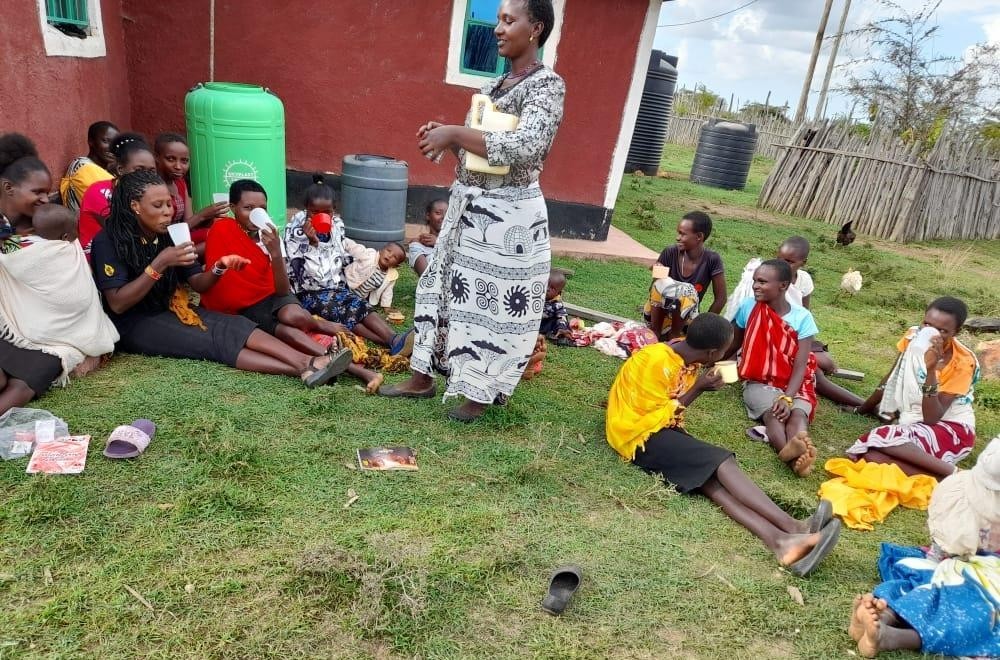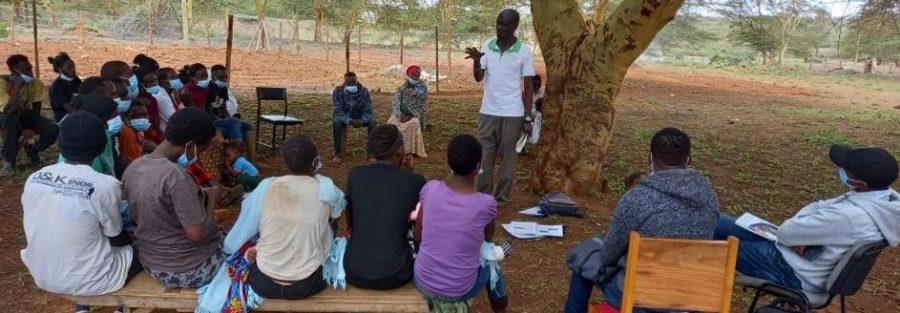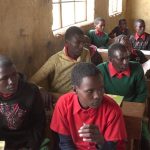Getting pregnant and consequently dropping out of school has traditionally knocked the stuffing out of many Kenyan girls. The combination of shock and shame, underlain by ostracization by society, has often been a blow so huge that few girls ever again raise their heads and get back to fulfilling their true life potential.

This is part of what makes Biotisho project so ambitious and so impressive, because it strives to rekindle the dreams of out-of-school girls and boys in Samburu Central Sub County. It is succeeding in inspiring and daring them to aspire to at least pursue their education again. “The good thing is that most of them are realising that being pregnant is not the end of the road,” says Janet Lemirimugu, a community health volunteer (CHV) and lead mentor of Namaiyana Adolescent Girl Group. “The stigma is something they struggle with but Biotisho is giving them a way out.”
Janet explains that while many cultures accept adolescence as a time of exploration and discovery with mistakes along the way, some parents draw a line when it comes to pregnancy, Girls who become pregnant get cast away and ostracized, the fact of their being a minor in need of counselling, guidance and consolation conveniently suppressed. “Biotisho is giving these girls hope,” says Janet. “One efficient and effective way is by use of out-of-school adolescent peer groups.”
This involves placing them in cells or groups, which optimizes both the reach of Biotisho information as well as its overall efficiency. These peer groups are an effective avenue to reach older adolescent girls and boys between 15 and 19 years of age who have dropped out of school. Prior to Biotisho, remorseful girls busied themselves working within their households, going to the market to buy food and fetching firewood and water. The boys on the other hand went adventuring with their livestock in search of water and pasture, often engaging in the deadly and bloody business of cattle rustling.

Now this motley crew is finding a new calling under the Biotisho peer groups. “The sessions are interactive and often involve demonstrative activities, for example, treating of dirty water with water treatment commodities,” the program booklet explains. “The messages shared by the CHVs … are guided by materials provided by the project.”
One can almost see the similarity between these adolescent peer groups and the traditional age-group system that teaches boys to be men during and after circumcision. The difference is that Biotisho pushes them to take control of their lives and aspire to be the highest and best version of themselves. The benefits of this CHV mentor-led sessions have been immense, according to Janet. She enumerates them as including unity:
“They stand up for, and support, one another because the journey can be full of setbacks. They have all gone through discouragement, but some still struggle with it. They help each other to keep following the Biotisho classes. “There are 18 members in my group, all girls. Ten are mothers, six dropped out of school, one is back in school and the rest plan to join for the first time in January. The group helps us to support one another.”
Such organization has also resulted in all the members of the group having kitchen gardens and taking nutrition seriously. The adolescents, especially the girls, have gone further and formed village saving and loans association (VSLA). Through these they contribute small amounts of money into a common kitty and then take small loans for individual developments.
“The sense of togetherness this has fostered is amazing. When one of them is in need, they visit and support them through a social fund they have created. They never touch the savings for this purpose,” Janet says. The groups also act as safe spaces where members find emotional and moral support during crises.
Further, these peer groups have become some kind of catchment areas that attract other adolescents to join. “Even parents approach us to ask that their adolescents be allowed to join the groups. That’s a wonderful opportunity for growth.”
Additionally, CHVs are now able, through these groups, to refer the adolescents to facilities in Suguta and Loosuk for health and nutrition services. Public health officials now reach the group members with information and services, such as HIV testing, contraception and family planning, and iron and folic acid supplementation, in a more structured way.
One last advantage worth mentioning is that the adolescents have found support and motivation to return to school in line with the government’s Back-To-School Re-entry policy.
There might be one last unforeseen advantage: the groups meet on Thursdays. Janet observes that many of the young morans, wherever they are in their pastoralist calendar, do all they can to get back and attend the meetings. “They even hire boda boda (motorcycle taxis) to bring them for the sessions,” Janet says. This, one might be drawn to conjecture, could have a positive impact on cattle rustling.
With rise in demand, one thing remains to be done, according to Janet: “We have talked about meeting their parents and/or husbands to enquire and quantify if they are aware of what their daughters or wives are doing in Biotisho and whether they have noticed any difference in them.”



